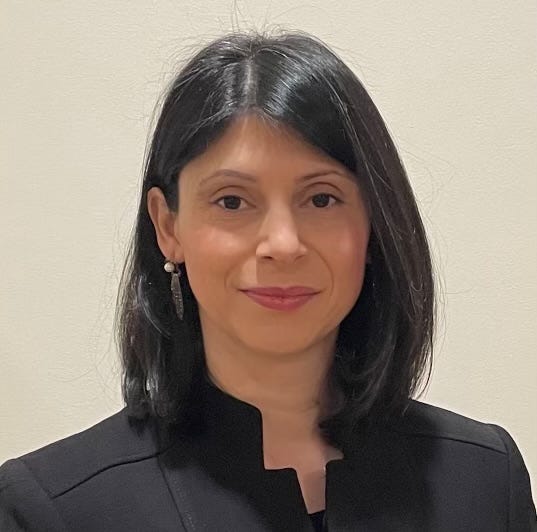
When Karim Najjar, a New Jersey pediatrician, wanted to set aside savings for retirement, he looked to his native Lebanon.
Emerging from a civil war, the Middle Eastern country was seeing economic growth and had begun pegging its currency to the U.S. dollar in 1997. Around that time, Najjar opened an account in Byblos Bank, which offered higher interest rates than U.S. banks.
In 2019, Najjar learned — with the rest of the world — about a stunning and massive banking scheme fueled by government corruption, fraud and mismanagement that crashed the nation’s economy. To this day, he said, has been prevented from withdrawing savings or transferring accounts out of the country.
“It infuriated us,” said Najjar, 71, of Moorestown. “We could not do anything about it. It is money we collected, and we wanted for our retirement.”

Najjar is among many Lebanese Americans who were exploited by what many economists have called a Ponzi scheme, a system in which new money is borrowed from new investors to pay back existing ones. Lured by high interest rates, they put money in Lebanese banks and later were denied access to their own accounts.
Today, Najjar is the lead plaintiff in a class action lawsuit filed in United States District Court in New Jersey April 16 against banks and auditors. The lawsuit alleges that they conspired to defraud American citizens, in violation of the federal Racketeer Influenced and Corrupt Organization Act, or RICO.
“Lives were destroyed by the Lebanese banks’ actions,” said Charles LaDuca, Chairman of Cuneo Gilbert & LaDuca, the firm that filed the lawsuit, in a statement. “We intend to advocate aggressively for our clients, and filing this first-of-its kind case is just the first step towards justice.”
More:Long considered ‘white’ on the US census, MENA will now have a new race category
Promises they could not keep
According to the complaint, banks took billions of dollars from U.S. citizens, promising interest rates they could not sustain and misleading them about their financial health.
When people wanted to close accounts, banks would entice them to stay with even higher rates. Banks also convinced depositors to convert their U.S. dollars to lira, the Lebanese currency, using articial conversion rates, according to lawyers who called it a “bait and switch.” The lira has lost 98% its value since the economy began unravelling in 2019, Reuters reported.
Najjar asked about withdrawing money between 2016 and 2019, and each time, the bank manager offered to raise rates if he stayed put. He was offered 10 to 12% at a time when US returns were 3%.
Najjar has accounts — two with savings in US dollars and one for interest in lira — valued at more one million. After the crash of 2019, anyone with a bank account in Lebanon, including the nation’s own citizens, were unable to access accounts.
Banks eventually began allowing clients to withdraw up to $400 a month paid in local currency, plus the equivalent amount in local currency. The withdrawals needed to be made in person in Lebanon.
The lawsuit was filed against Banque du Liban, Byblos Bank, S.A.L., Ernst and Young Accounts, and others.
Aggressive marketing

About 686,000 people of Lebanese ancestry live in the United States, according to the U.S. Census Bureau, with a large community located in New Jersey.
In Lebanese American hubs, word spread about lucrative interest rates. Bankers also marketed to U.S. citizens using tools like WhatsApp call and messaging, email, and phone conversations to attract depositors, according to the lawsuit.
Samar Issa, an assistant professor of Business Administration at St. Peter’s University Frank J. Guarini School of Business in Jersey City, said marketing was aggressive as banks desperately sought infusions of foreign currency. Many invested, but she warned family and friends to stay away.
“As an economist, I could say, no, this doesn’t make sense. There’s no government that can give this,” said Issa, who has researched and written about the Lebanese financial crisis.
For accounts converted from dollars to lira, banks were offering as high as 17% on regular accounts and 21% on government bonds, Issa said. Government corruption fueled the crisis, she added. Banks were paying high interest to clients, then were compelled to provide funds to the government to service debt at low rates of interest, she explained. It was unsustainable.
As signs of financial trouble become clear, bank employees, shareholders and their relatives moved money to offshore accounts, further deepening the crisis. When banks no longer had enough dollars to pay back clients, they shut down and the government defaulted on debt. Lebanon is still reeling from the financial crisis today.
Issa urged people not to “blindly trust financial advisors and bankers” and not to trust promises that seem too good to be true.
From New Jersey, Najjar watched as Lebanon’s financial system neared collapse, worrying about his savings. What happened to him and others is not fair, he said.
Then he got a call about joining the class action lawsuit. “I said, why not? I have nothing to lose.”





